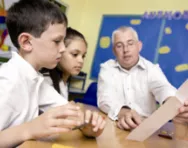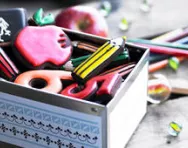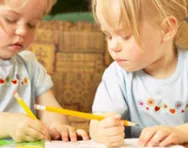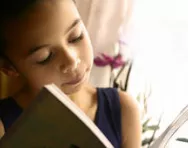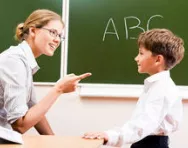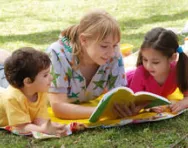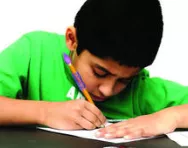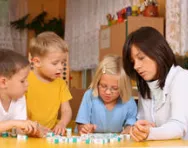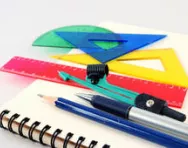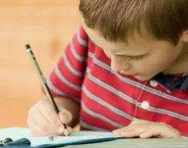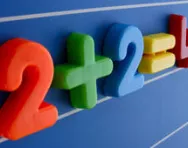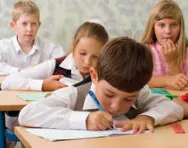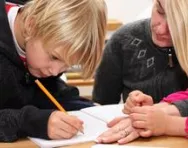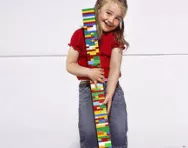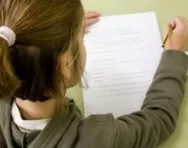8 questions you must ask your child's teacher
No one understands your child's academic development better than their teacher. Lucy Dimbylow explains how to get the best out of parent-teacher meetings by asking these eight questions.
Teachers' best and worst gifts ever
Yes, it’s the thought that counts, but what would teachers really like as a thank-you gift at the end of term? Lucy Dimbylow asked them to reveal their favourite ever presents – and the ones they could have lived without
Why music is important in the national curriculum
Music helps children learn across subjects and can help to build social and cultural values, too. Find out more about why it’s so important for your child.
National curriculum drama: the lowdown
Most children are natural actors and drama helps to unleash their creativity and build up their confidence. Find out what your child will be learning in class and how you can develop their flair for the theatrical at home.
National curriculum art – what they learn
Help to spark your child's artistic streak with these useful tips.
Learning literacy at home
The everyday world provides a wealth of learning opportunities to get your child using their literacy skills outside school. Try these top tips to get your child writing and reading at home.
National curriculum PSHE explained
PSHE stands for Personal, Social, Health and Economic education. It is an important part of your child's national curriculum learning. So what does it cover and how can you support your child at home?
What is primary SEAL?
SEAL promotes social and emotional literacy in children and equips them with the skills they need to lead a healthy, happy life. We explore the different aspects and how you can get involved.
National curriculum geography – is it a dying subject?
Geography should be one of the most exciting parts of the school timetable, so why do so many children find it boring? Melissa Murphy unearths ways to put geography back on the map
Alternative education: what are the benefits?
We take a look at alternative schools and what they have to offer your child.
How to spot your child's hidden gifts
Author Bernadette Tynan reveals some of the different types of gifts and talents your child might have, and how to nurture them.
How to extend a highly able child, subject by subject
Our guide to supporting your gifted child’s learning at home, from literacy and maths to history and languages.
How to support an underachieving child
There are lots of ways to help an underachieving child. Find expert advice and tips on how to encourage them to develop in their weak areas here.
How to prevent your child from falling behind
All parents know the anxiety that accompanies a child’s progress through school but few realise just how significant they can be in helping, writes teacher Mike Walton. Here’s his step-by-step guide to supporting a struggling child.
Children's learning: How hard should you push your child?
Do you worry about getting the balance right between your children's learning and play? Read on for our advice.
SATs revision: your KS2 SATs English helper
Boost your child's confidence before the Y6 English assessments with these handy tips and literacy activities that you and your child can work on together.
SATs advice: spelling strategies
During their time in primary school children learn to spell words accurately by a combination of approaches. Help boost your child's spelling confidence for SATs success with our strategies and suggestions.
SATs advice: speaking and listening
Speaking and listening enable children to problem-solve, exchange ideas, participate in decision-making and reflect on issues which matter to them. Through these interactions, a child's creativity and understanding are engaged and developed. Encourage your child to develop their speaking and listening skills at home to help them with their SATs literacy exams and to become successful communicators in their future lives.
SATs advice: measuring and estimating
The ability to measure and estimate are important skills in both numeracy and science learning across the Key Stages. Measuring weight, height, volume and thickness and a growing awareness of quantity will help your child's ability to estimate amounts and enable them to make comparisons between objects. Here’s how to develop your child’s skills outside the classroom to increase their confidence and help them get ahead in their SATs learning.
Top 10 ways to calm your child's fears about SATs
Give your child some all important “me time” during their SATs with our top tips on how to relax the mind and body and make for a healthier, happier learner!
Problem solving exercises for SATs
Problem solving is something we do constantly. Help your child develop their skills with our top activities to get them prepared for their SATs – and problem solving in everyday life.
SATs advice: maths problem-solving
Many of the questions in maths SATs papers for KS1 and KS2 involve problem-solving. Help develop your child's mathematical problem-solving skills at home with our guide to what they need to know in Y2 and Y6 and some practical activities you can try at home.
12 ways to give memory skills a boost and prepare for SATs
A good memory could be your child’s biggest asset when he’s preparing for SATs, tackling times tables or rehearsing for the school play. Here’s our guide to getting those synapses firing.
8 common questions about SATs answered
Get ready for SATs with our guide to everything you need to know about the Year 2 and Year 6 assessments.
What educational value do SATs have?
SATs tests are one of the most hotly debated topics among educationalists, parents, and even children. So what do the experts have to say about their value and effect on children?
Supporting your child after SATs
They’ve done the revision and taken the tests, so now it’s time to get back to life as normal. Follow these handy tips on helping your child unwind and avoid worry in the SATs aftermath.
Countdown to SATs: your action plan
Stressed about SATs? Not sure if your child is ready for the tests? Don’t panic... just follow our six-week action plan for SATs success.
SATs results: helping your child cope
Your child’s SATs can cause a rollercoaster of emotions, culminating in the nerve-wracking results day. Here the experts reveal how to keep SATs scores in perspective and offer your child the support they need – whatever the outcome.
SATs preparation: how play can help
Noses in books and pens to paper are all well and good for SATs revision, but did you know that encouraging your child to play could also help them achieve their best during SATs?
10 top tips for SATs revision
Revision for tests is never easy for your children, but fear not, positive parenting expert Sue Atkins shares her advice to parents who want to help their kids achieve their best.
Exam revision planner for SATs and beyond
Get your child off to a confident start with these exam revision tips for SATs and other school exams from top parenting expert Sue Atkins.
